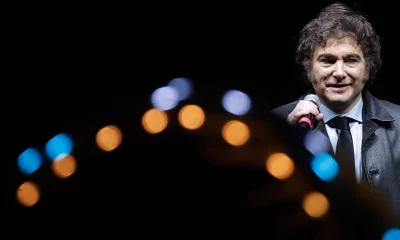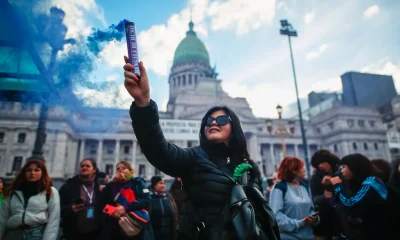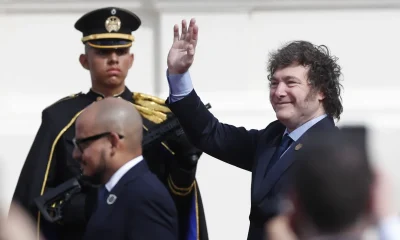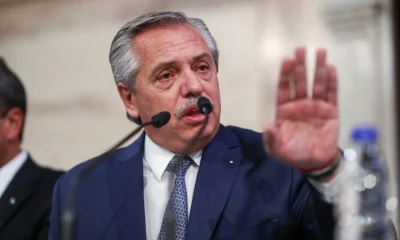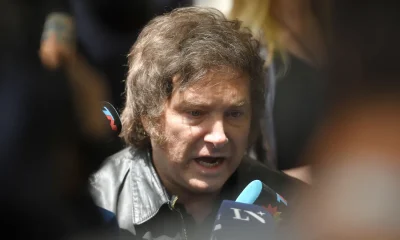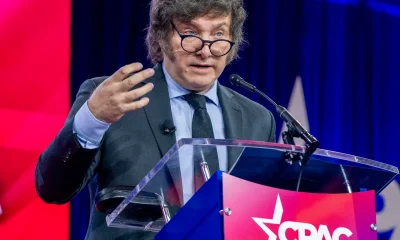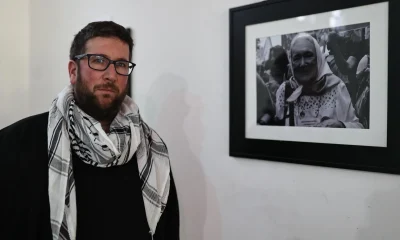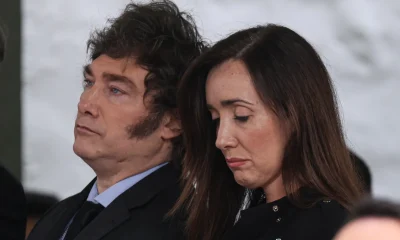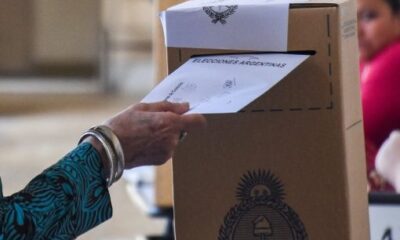International
Argentina’s presidential candidates in final debate
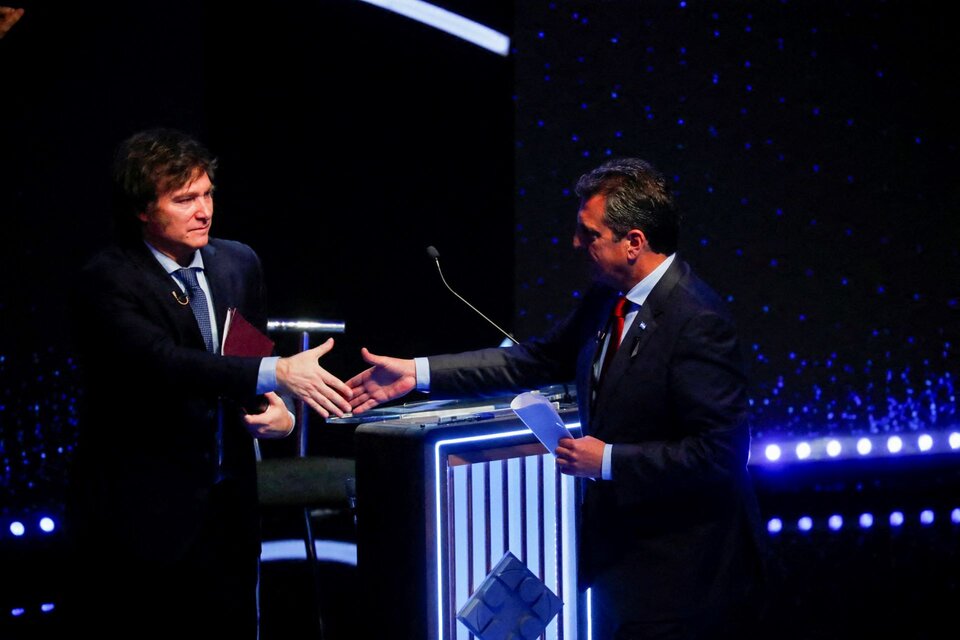
November 13 |
The candidates for the Presidency of Argentina, Sergio Massa (Unión por la Patria) and Javier Milei (La Libertad Avanza) starred on Sunday night in the last and decisive television debate to seek support for the ballot on November 19.
The Law School of the University of Buenos Aires, in the Argentine capital, the same venue as the second debate held before the first round, is the space chosen by the National Electoral Chamber (CNE) for this last appointment.
Throughout the debate both candidates discussed several issues and had a new opportunity to make known their proposals and plans to reach the presidency of the country.
Both Massa and Milei entered into a strong counterpoint, in which the candidate of Unión por la Patria, managed to make the right-winger uncomfortable, who could not face each of the criticisms against him exposed by the candidate of Unión por la Patria (UxP).
The Minister of Economy, Sergio Massa, in his presentation, pointed out that “we have to decide who is going to take care of our health, our education, our work. I am here to propose a great change, with a great agreement of state policies, with dialogue, consensus and respect for those who think differently”.
Milei tried to defend his economic model saying that “Argentina has been in decline for 100 years. This is a consequence of the caste model, which assures that where there is a need there is a right. The problem is that needs are infinite and those rights have to be paid for. This manifests itself in fiscal deficit”.
Massa put Milei on the spot when he confronted him against his campaign and pre-campaign statements: “But there are many things at stake here. We are facing someone who lied during the whole campaign or is lying now”.
According to the Minister of Economy, “Argentina has the responsibility, in an absolutely convulsed world, to think its foreign policy in defense of the Argentine interest, we have to be clear about multipolarity, to have relations with all the countries that open their arms to sell Argentine work. The main partners are Brazil, China, we have to defend that commercial agenda that provides jobs to two million Argentines. This man [Milei] called the most important Argentine in history, Pope Francis, as evil, we are going to work for Francis to come to the country in 2024. And we have to defend the Malvinas cause”, says Massa when talking about Argentina and its relationship with the world.
In the same sense, Massa expresses that Milei said “that Margaret Thatcher was your idol and that the kelpers had the right to self-determination, I ask people to look up what you said”.
Milei tried to answer: “Thatcher was a great leader like Churchill or De Gaulle, she had a great role during the fall of the Berlin Wall, but you are upset that the Wall fell”.
However, Massa closed “Thatcher is an enemy of Argentina”.
The third axis was dedicated to Education and Health. While Milei denies wanting to privatize. Massa answered him in this sense: “Eight points of the GDP will be allocated to education, with 753 kindergartens, with a literacy plan, with compulsory mathematics and robotics, with the preparation of shorter university careers”, Massa listed his proposals.
In the economic block, Sergio Massa pointed out that from the Government “this year we made an effort that allowed us to grow in employment every month” and rejected Javier Milei’s proposal of “opening the economy” that will “destroy thousands of families”.
Massa expressed that “I do not want to go back to that stage in Argentina”, in relation to the indiscriminate opening of imports.
Sergio Massa, said this Sunday that he seeks to “definitively bury the political crack” that exists in the country, while his opponent, the libertarian Javier Milei, asked the population to vote “without fear because it paralyzes”.
At the end of the debate, both candidates were asked by the moderators why they want to preside Argentina.
Massa repeated the idea of forming a “government of unity”, with a program of 10 State policies, and promised to those who will not vote for him out of conviction, “but as a vehicle for not choosing a path that is violence, that is hate, that is damage”, that he will work “so that they do not feel that they threw their vote away”.
On his part, Milei highlighted that this is “the most important election of the last 100 years” because Argentina must ask itself if it wants to continue “walking this decadent path” and “sustain this parasitic, useless and useless caste”; therefore, he asked to “vote without fear because fear paralyzes and benefits the ‘status quo’”.
In view of Javier Milei’s difficulty to answer Sergio Massa’s questions and criticisms, the media could not hide their opinions about the right-winger’s participation in the last debate.
Several media reported that Massa came out victorious by answering with clarity and precision each one of Milei’s opinions, who on more than one occasion tried to make the candidate of Unión por la Patria uncomfortable.
At the end of the last debate for the second round of elections scheduled for November 19, specialized political programs and hegemonic media reported that the candidate of La Libertad Avanza was hesitant and erratic in contrast with Sergio Massa’s answers.
International
New York Announces First 2,000 Seats in Universal 2-K Program
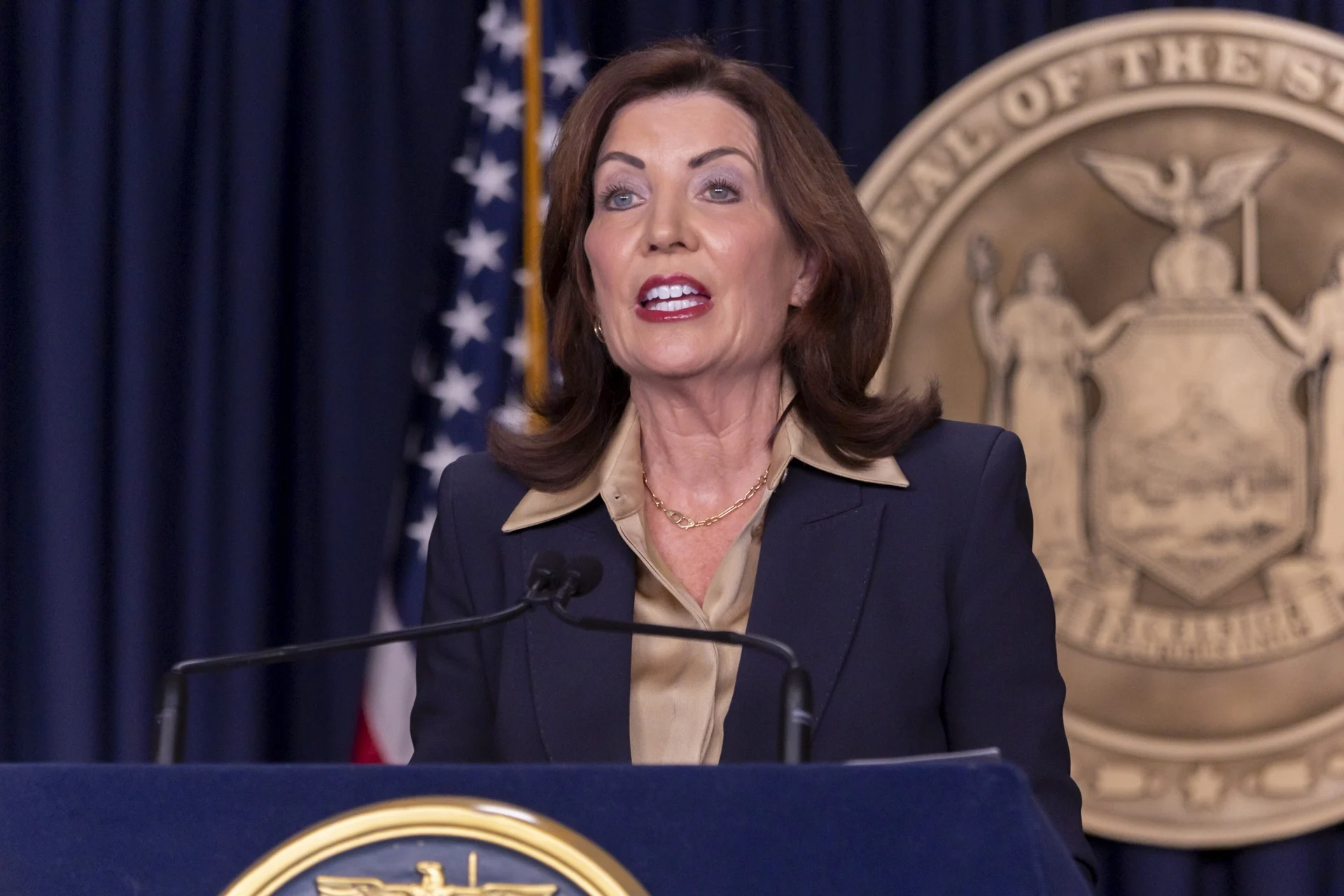
The Governor of New York, Kathy Hochul, and New York City Mayor Zohran Mamdani took another step today in their universal early education agenda by announcing the communities that will have access to the first 2,000 seats in the new 2-K program this fall — an initiative backed by a $73 million investment.
The funding is part of the $1.2 billion package previously unveiled by Hochul to strengthen child care and early childhood education across the city, one of the key campaign promises of the now Social Democratic mayor.
At the time of the announcement, the governor also outlined additional funds to reinforce the existing 3-K early education infrastructure, a program launched under former Mayor Bill de Blasio (2014–2021).
When the 2-K initiative was introduced in January, Mayor Mamdani explained that its first phase would offer 2,000 seats, with the goal of eventually expanding into a universal program — a commitment supported by the governor.
State investment in child care and preschool services is expected to increase to $4.5 billion by fiscal year 2027.
Among the first communities set to benefit from the 2,000 seats are Upper Manhattan and Inwood — areas with large Dominican populations — as well as Fordham and Kingsbridge in the Bronx, a borough with a Latino majority.
In East Brooklyn, Canarsie, Brownsville, and Ocean Hill will also be included. Meanwhile, Ozone Park and the Rockaways are among the neighborhoods that will see the rollout of the 2-K program.
International
Warner Bros. Developing First ‘Game of Thrones’ Movie With ‘Andor’ Writer

Warner Bros. is developing the first feature film based on the hit saga Game of Thrones, with Beau Willimon — screenwriter of Andor — attached to direct, according to a report published Tuesday by Page Six.
The project, currently in early development, will focus on the conquest of King Aegon I Targaryen. A separate television adaptation centered on the same historical storyline within the franchise is also in early stages at HBO.
However, the outlet noted that it remains unclear whether the film will move forward following the recent acquisition of Warner Bros. Discovery by Paramount Skydance.
If the merger is finalized, the movie could potentially be shelved, although that scenario appears unlikely given that the Game of Thrones franchise remains one of HBO’s most valuable and beloved properties.
After six seasons adapting the work of George R. R. Martin, the platform expanded the universe with House of the Dragon, a prequel series set 200 years before the events of Game of Thrones that explores the history of House Targaryen.
International
Spain’s Prime Minister to Address Nation Amid Trump’s Trade Threats

The Prime Minister of Spain, Pedro Sánchez, will deliver an institutional address this Wednesday at the Moncloa Palace regarding the escalating situation in the Middle East and recent threats directed at Spain by U.S. President Donald Trump.
The Spanish government announced that Sánchez will make a statement at 9:00 a.m. local time to outline his position on the latest developments following the U.S. and Israeli attacks on Iran.
Sánchez is expected to reiterate Spain’s reasons for opposing the use of U.S. military bases on Spanish soil in the operation—an action he has already described as being outside international law—while also expressing criticism of the Iranian regime.
Government sources indicated that the address had been planned prior to Trump’s remarks criticizing Spain’s stance. However, following those comments, Sánchez is now also expected to respond directly to the U.S. president’s statements.
Trump has threatened to “cut all trade with Spain” and said he wants “nothing to do” with the country after Madrid refused to authorize the use of the Morón and Rota military bases in southern Spain for operations against Tehran.
The U.S. president also labeled Spain “a terrible NATO partner” and warned that “no one” would tell him he could not use the facilities.
In response, the Spanish government stated that Spain fulfills its commitments to NATO and European defense. It also warned Trump that any review of bilateral trade relations must respect international law and the agreements in place between the European Union and the United States.
-

 International2 days ago
International2 days agoIran Reports 201 Dead, 747 Injured After U.S. and Israeli Strikes
-

 International2 days ago
International2 days agoPope Leo XIV Urges End to ‘Spiral of Violence’ in Middle East
-

 International4 days ago
International4 days agoTrump Floats “Friendly Takeover” of Cuba Amid Rising Tensions
-

 Sin categoría3 days ago
Sin categoría3 days agoTrump: ‘We Think It’s True’ Amid Claims Iran’s Supreme Leader Was Killed
-

 International3 days ago
International3 days agoSecurity Council to Hold Emergency Meeting on Middle East Crisis
-

 International1 day ago
International1 day agoBrazil’s Supreme Court Rejects Bolsonaro’s Bid for House Arrest
-

 International4 days ago
International4 days agoArgentina’s Senate Reviews Milei-Backed Labor Overhaul
-

 International1 day ago
International1 day agoAnti-ICE Billboard Campaign Targets Immigration Spending in 31 U.S. Cities
-

 International1 day ago
International1 day agoTrump Warns of ‘Major Wave’ of Attacks as Iran Conflict Escalates
-

 International1 day ago
International1 day agoMexico Calls for Immediate Probe After National Dies in ICE Custody
-

 Central America1 day ago
Central America1 day agoPanama Canal Monitoring Trade as Middle East Conflict Disrupts Shipping
-

 International1 day ago
International1 day agoBolivia Orders Three Investigations Into Deadly Military Plane Crash
-

 International7 hours ago
International7 hours agoNew York Announces First 2,000 Seats in Universal 2-K Program
-

 International7 hours ago
International7 hours agoSpain’s Prime Minister to Address Nation Amid Trump’s Trade Threats
-

 Central America7 hours ago
Central America7 hours agoGuatemala’s Attorney General Fails in Bid for Top Court Seat Amid Corruption Allegations
-

 International7 hours ago
International7 hours agoWarner Bros. Developing First ‘Game of Thrones’ Movie With ‘Andor’ Writer































